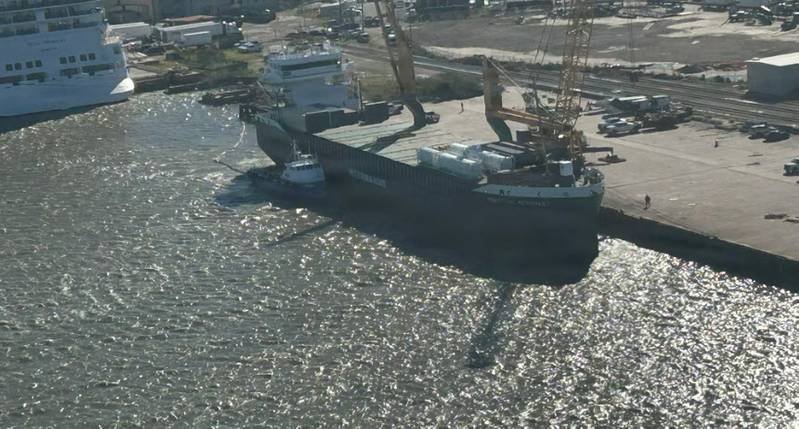Volunteers faced a daunting task on Friday as they worked to clear tons of sticky oil from the Black Sea coastline in Russia. The oil spill resulted from two Russian oil tankers that were severely damaged in a storm in the Kerch Strait, which separates southern Russia from Crimea. The incident, labeled an ecological disaster by President Vladimir Putin, resulted in one vessel splitting in half and a crew member losing their life.
At the shoreline, volunteers diligently shoveled oil and blackened sand into sacks to be removed by trucks, while viscous black tar continued to wash ashore. The impact of the spill on nature was described as potentially lasting for many decades, with fuel oil still present under the sand even after cleanup efforts. Efforts were also made to rescue distressed sea birds, with over 500 treated and more than 30 unfortunately perishing.
The Kerch Strait is a crucial route for Russian exports, and the two damaged ships were carrying a total of 9,200 metric tons of oil products, with an estimated 40% leaking into the sea. Legal action has been taken against the captains of the ships for suspected violations of maritime safety rules. The affected area, including a protected nature reserve, spans over 45 hectares, with thousands of rescuers and volunteers working to collect contaminated sand and soil.
The disaster has had a significant impact on the environment in an area known for its seabirds, dolphins, and sandy beaches. Anapa, a popular tourist destination, is among the worst-hit locations. The clean-up efforts, involving thousands of individuals, have so far collected over 3,300 tons of contaminated material, indicating the scale of the challenge in restoring the affected coastal ecosystem.
Share it now

















